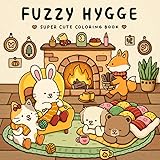Winnipeg’s 3rd Lunar New Year hockey tournament renews pride in culture, sport
Four teams of adult athletes laced up their skates to play in a hockey club’s third annual tournament celebrating the Lunar New Year while promoting diversity and inclusivity in sport.
The four-day tournament organized by the Winnipeg Emperors Hockey Club began Thursday at the hockey for all centre. The teams played for the gold and bronze medal games on Sunday.
“As somebody who didn’t get to start playing hockey until their adult years, it’s great to play organized hockey because I never got to experience this when I was young,” said team White Snake goalie Ray Camphu on Sunday.
Barriers related to not speaking English as a first language, financial security and having knowledge of the sport prevented him from playing hockey at a young age, he said.
Camphu, who is Laotian, grew up in Edmonton where he says there was little to no outreach for Asian youth interested in hockey. He wasn’t able participate in hockey until his 20s.
“I truly do believe that we live in a time where representation truly matters,” Camphu said.
“It matters what we see on TV It matters what we see in the movies and in the papers that there is other colours in the world, and we don’t have to be reserved to just being the ones observing, that we can be the ones participating.”

Jo Ang says he’s been playing hockey for more than 20 years and looked up to players like Wayne Gretzky, which encouraged him to get on the ice to learn.
“My parents put skates on me and told me to figure it out. Shortly after that, my dad started building ice rinks in the [backyard] and then I got better,” said the 37-year-old.
Growing up, Ang, who is Filipino, agreed he didn’t see too many hockey players of Asian descent, unlike the tournament, which helps community members of various ages and cultural backgrounds feel included.
This tournament “helps us [to] bring the sport to all the different ethnicities in I guess Canada or Winnipeg, because it opens up the sport to other cultures,” siad Ang, who played on the Yellow Vipers team over the weekend.
The team names were all snake-themed to mark the Year of the Snake, and the bronze medal game started before noon followed by the gold medal game.

Registration opened in November followed by a draft where the goalies were captains.
Club founder and tournament organizer Allan Chan said the competitive match-ups are accessible for anyone to join.
“The only requirement is that you love to play the game of hockey and you’re open to meeting new friends and people to play with,” Chan said during a Saturday interview on CBC’s Weekend Morning Show.
The annual tournament stems from where the hockey club got its start approximately 15 years ago. Chan and his friends felt inspired to make the club after taking part in the annual Asian Hockey Championship in Toronto, which features more than 70 teams including women’s and children’s divisions.
Chan remembers what it felt like to be a 12-year-old kid, eyeing the puck from his seat at the rink as the Winnipeg Jets took on the New Jersey Devils — a feeling that prompted him to get in on the ice-action.
“That game went to overtime and we won, and I remember the arena just popped off and it was the most thrilling thing I had ever … seen and from there I was just, you know, invested and just fell in love with the game,” Chan said.
Chan said it’s important to see the Asian community represented in hockey so youth, for example, can see themselves reflected in a sport they want to try out recreationally or professionally.
“It’s a very positive message because … growing up, some Asian kids or any kids of minority descent might be the only ones on their teams,” Chan said.
“When they see this tournament … and they can get together with other people that are, you know, of a similar culture, similar skin colour and similar languages that they speak, they feel an instant sense of just, you know, being represented.”
View original article here Source









